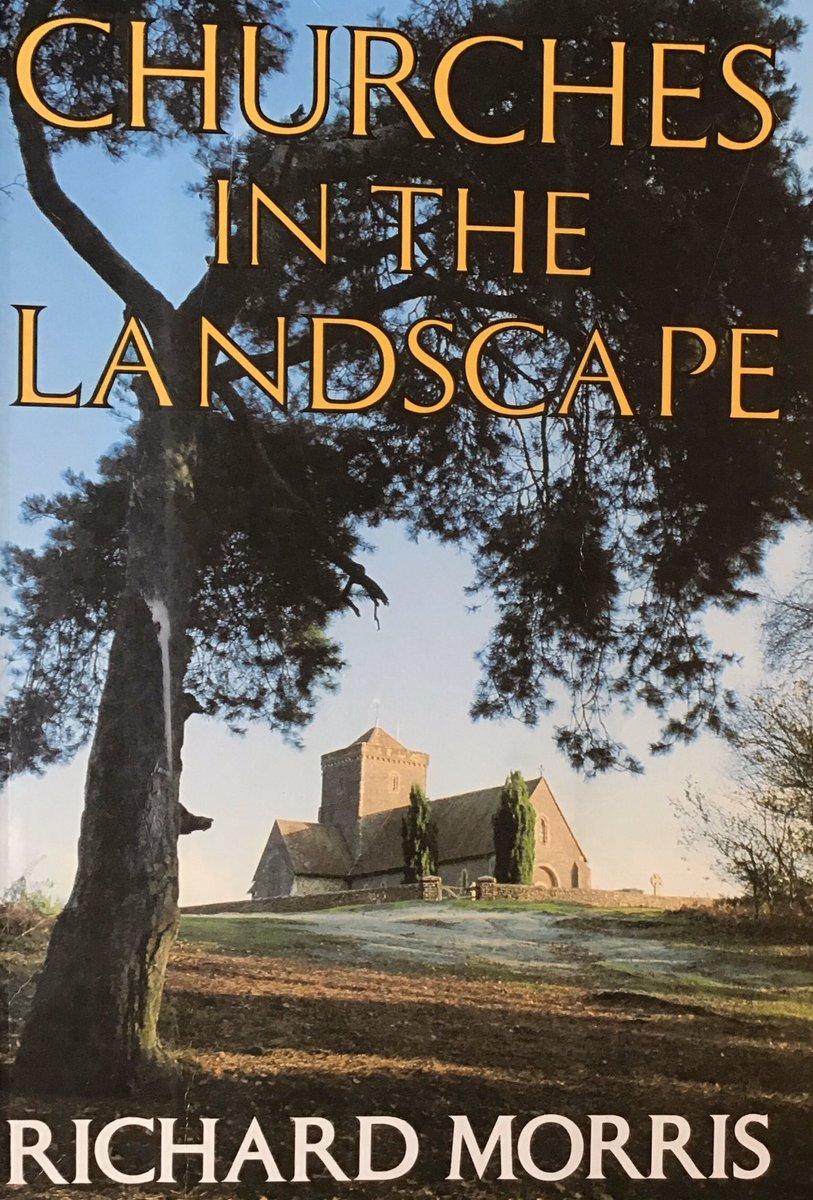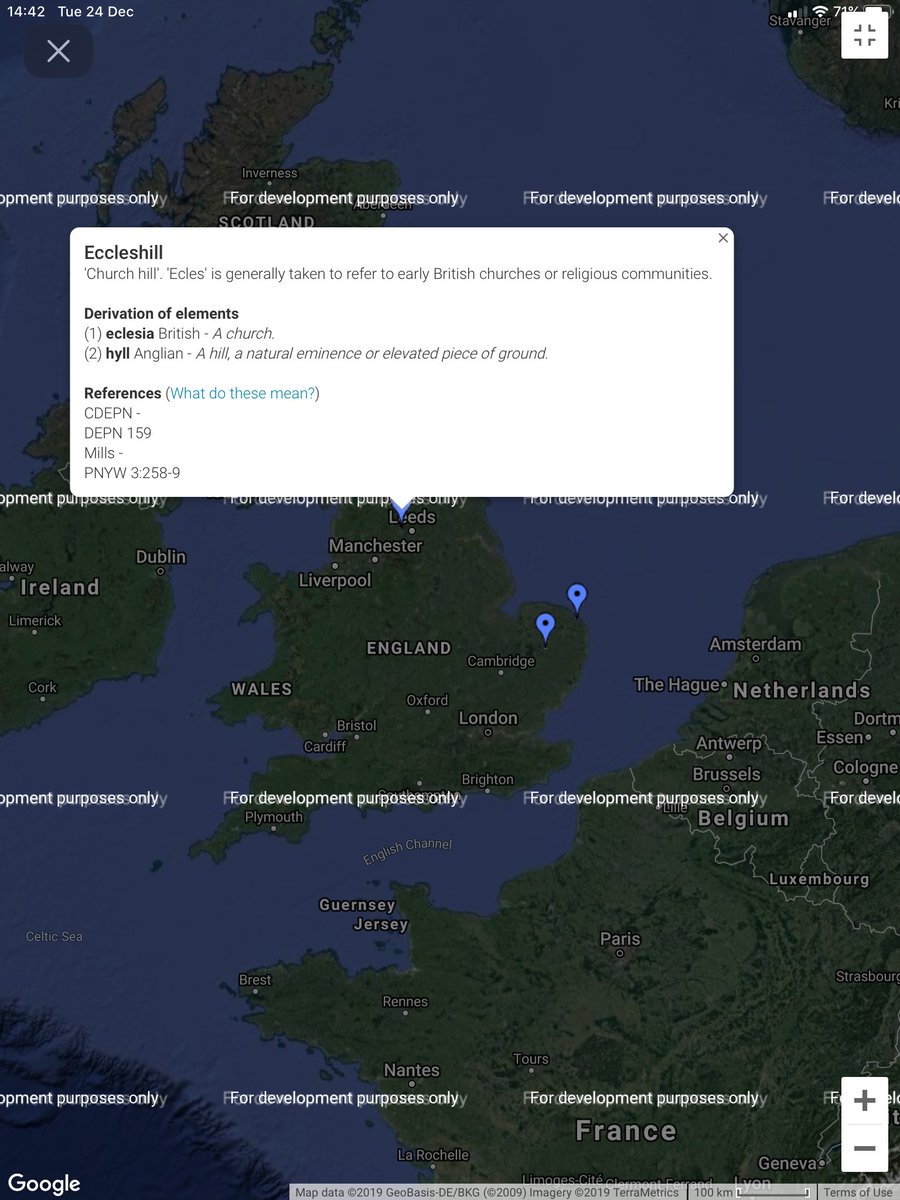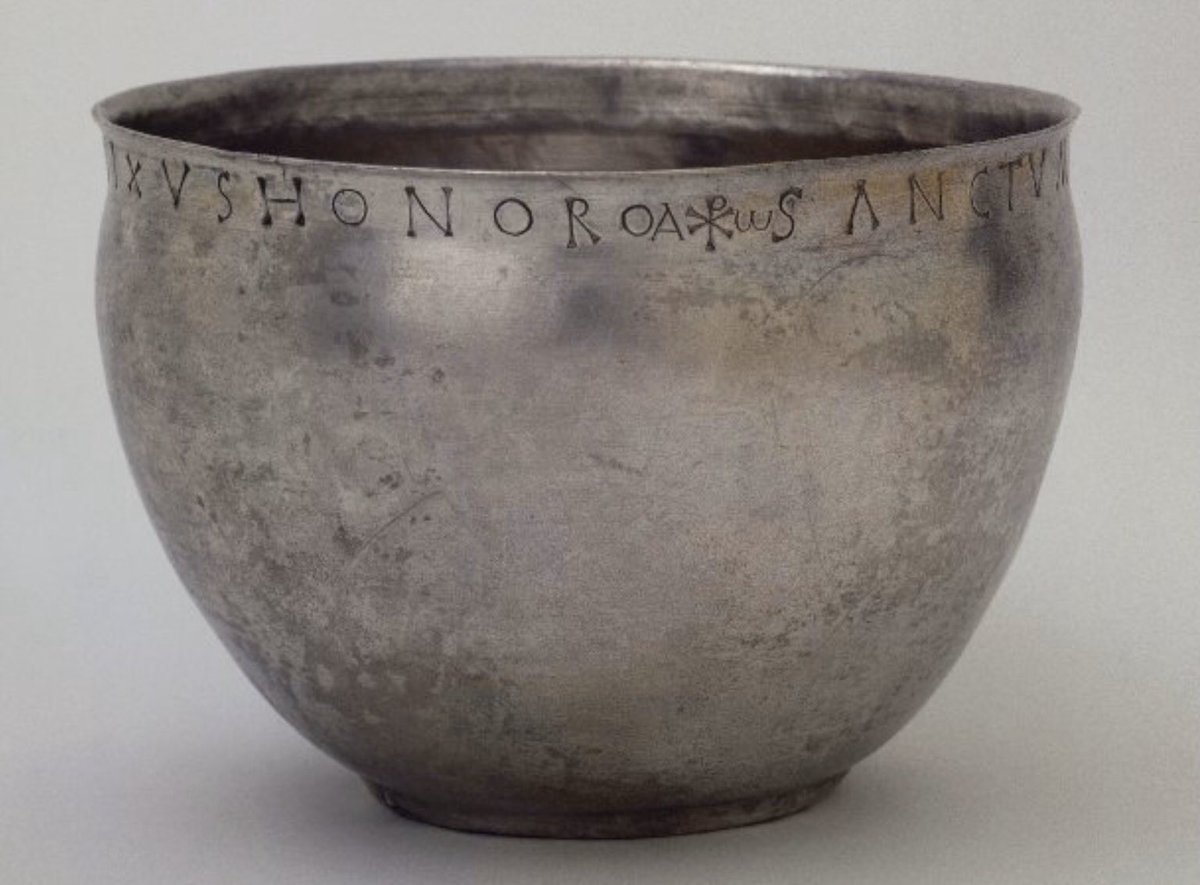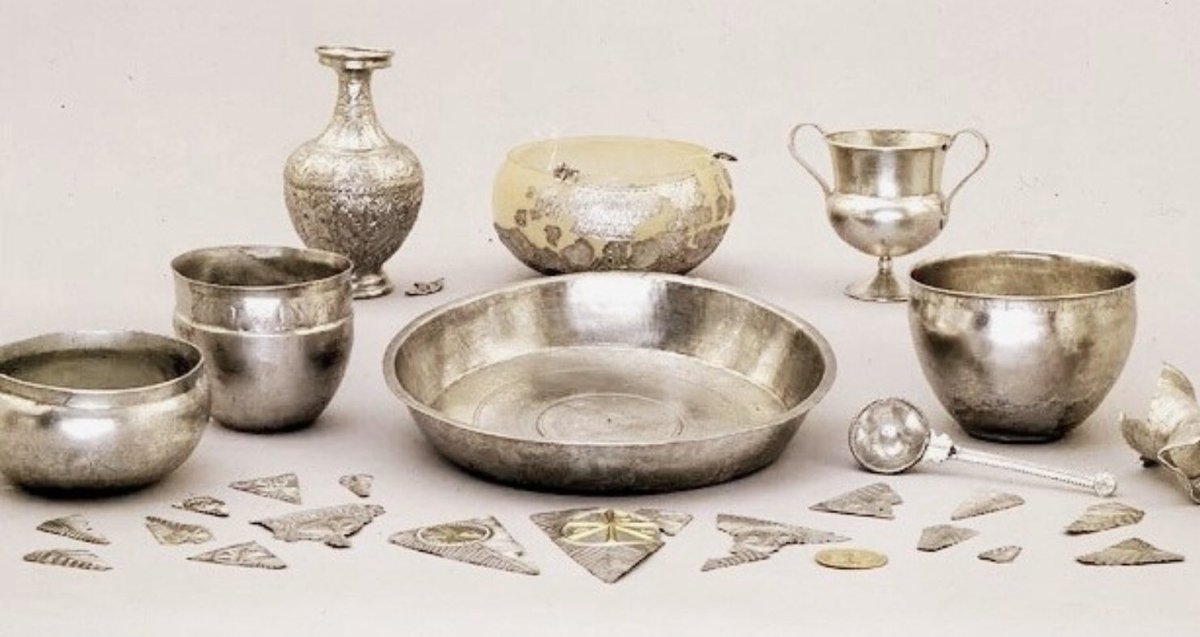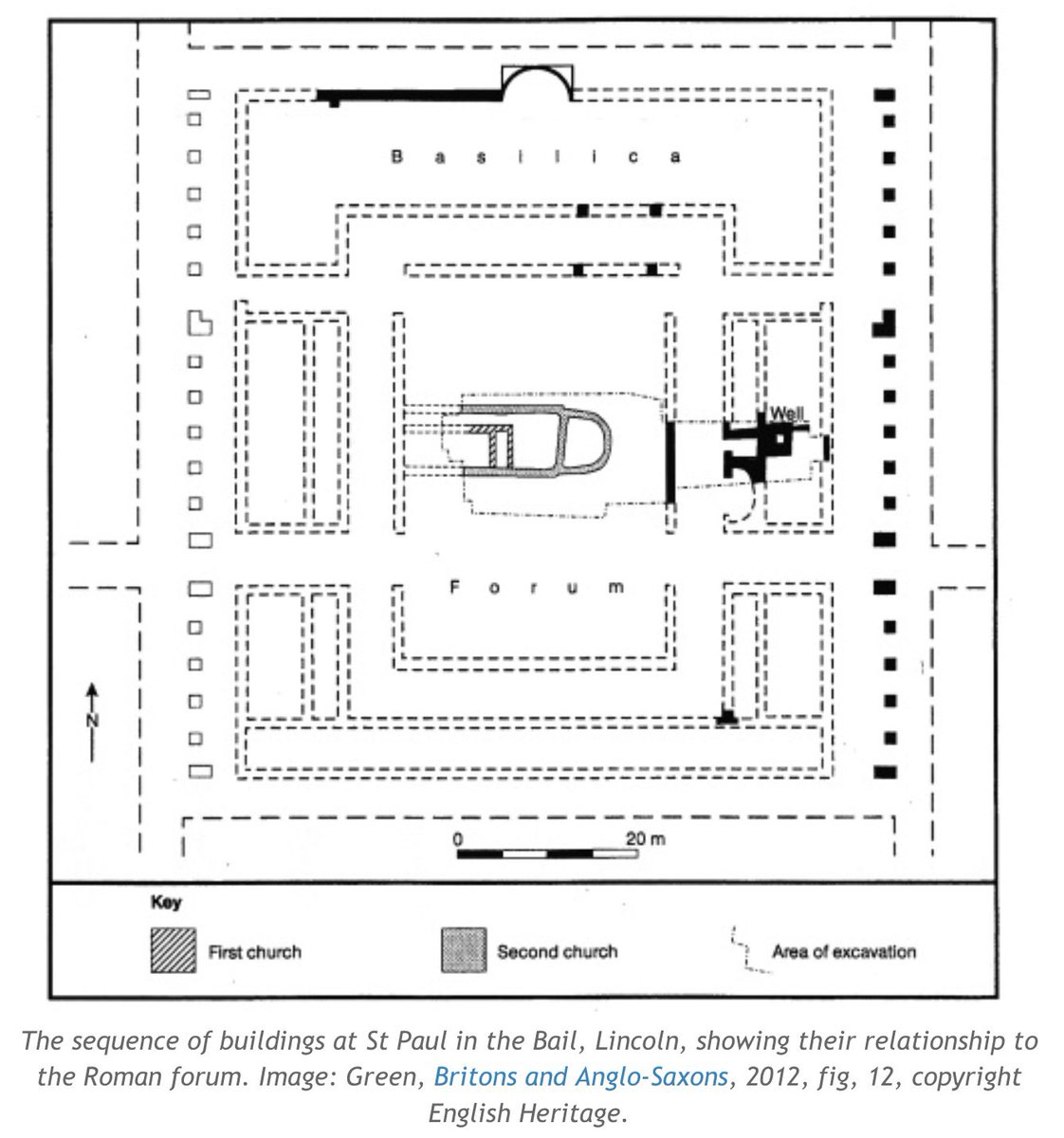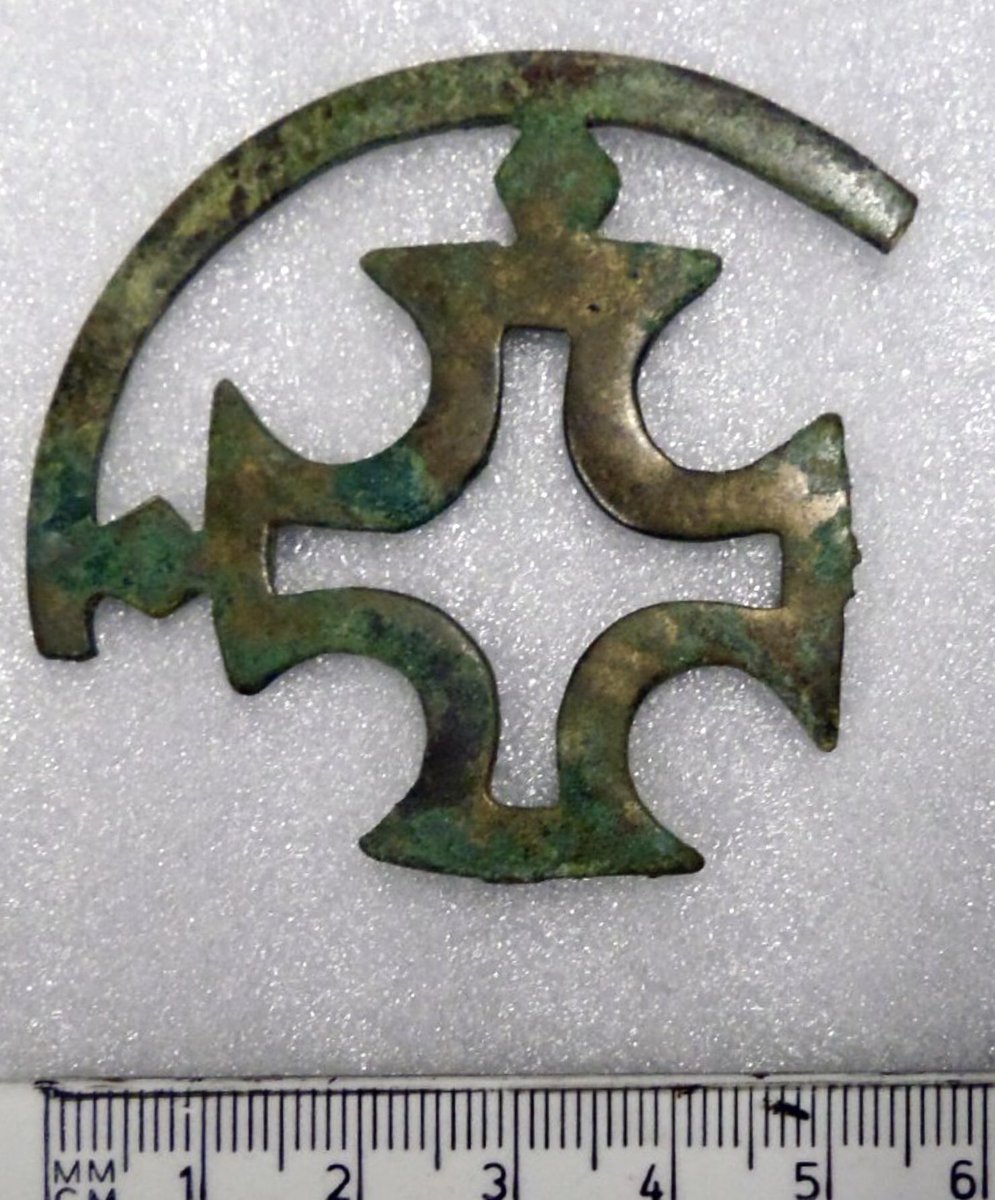Which British churchmen corresponded with/visited/were taught by whom across the 5th & 6th centuries before Augustine arrived in 595? Richard Morris’ figure of those personal connections suggests the possibility of a continuing Christian tradition in Britain after c400AD..
2. The survival of Romano-British Christian traditions across the period - even in E England - is suggested by a range of other evidence, including (eg) the distribution of Latin place-names for church: ie from ‘eclesia’ rather than Old English ‘cirice’ ( http://halogen.le.ac.uk )
And by late Roman Christian liturgical silver like the 9 silver vessels & 19 plaques from Water Newton, near Peterborough, perhaps the oldest to survive ( https://research.britishmuseum.org/research/collection_online/collection_object_details.aspx?searchText=Water%20newton&images=true&ILINK%7C34484,%7CassetId=190764001&objectId=1364283&partId=1)
And of early post-Roman churches like St Paul in the Bail in Lincoln - discussed by @caitlinrgreen - whose ‘timber apsidal church almost certainly dates from the fifth to sixth centuries’. See her excellent blogpost https://www.caitlingreen.org/2017/12/fifth-to-sixth-century-british-church-lincoln.html
This is not to argue that everyone in 5th/6thC Britain was Christian. Rather, that Christianity cont. to be practised c400-600 alongside other forms of religion as had prob. been the case in the late Roman period, too. Eg 6thC pendant cross from Bedford? https://research.britishmuseum.org/research/collection_online/collection_object_details.aspx?objectId=86526&partId=1&searchText=Anglo-Saxon+pendant&images=true&page=1

 Read on Twitter
Read on Twitter
